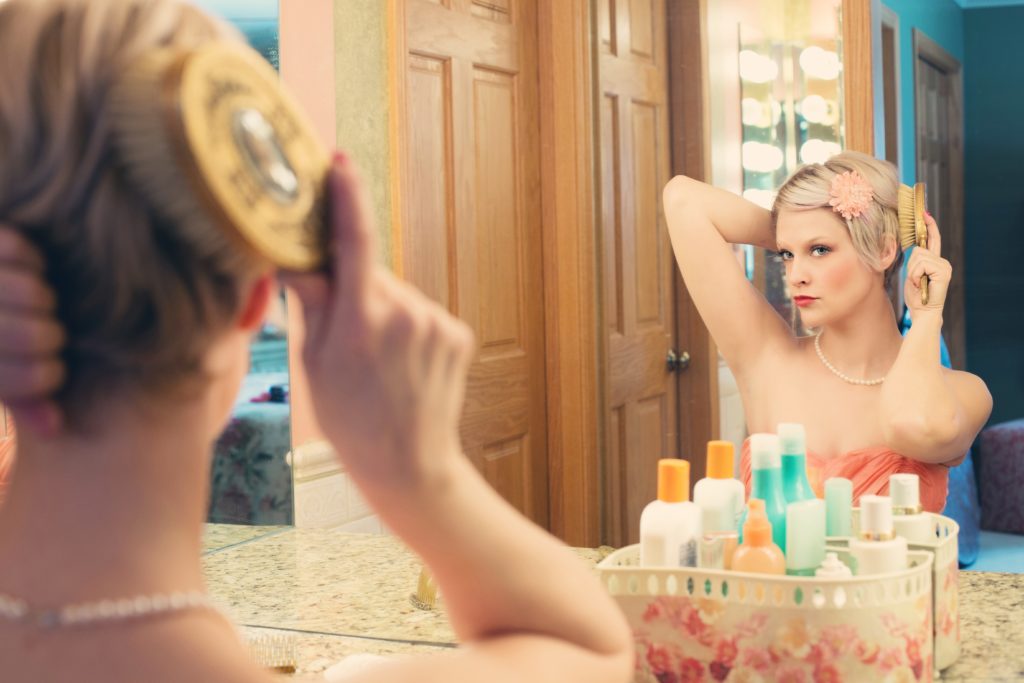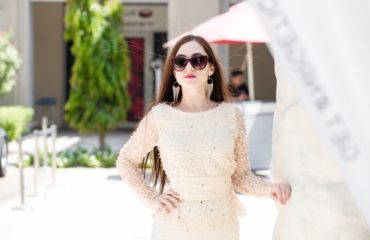
Long, thick and well-groomed hair of a girl is a sign of health and well-being. Therefore, many are so eager to grow hair like Rapunzel. It is especially difficult to do this with dyed hair: the ends of the hair split from numerous styling and dryings, and they have to be cut constantly.
How can you grow the desired length? This requires:
– good nutrition – daily protein intake (1 gram per kilogram of body weight)
– vitamin complexes for hair, which include components that accelerate their growth, as well as minerals that make the hair shaft stronger. You should add to the diet foods rich in omega-3 fatty acids, selenium, zinc (red caviar, salmon, oysters, herring, mackerel, walnuts, sesame seeds, beef);
– gentle care (shampoos, masks, serums), which should ideally be selected by a trichologist or hair specialist.
How should you care for your hair in winter?
The cold season is not the best time for hair. Sharp temperature changes affect them especially detrimentally: when you go out into the cold immediately after washing and styling your hair with a hairdryer. This inevitably leads to fragility and dryness of the hair shaft. If you are planning a walk in the cold, you need to wear a hat, warm shawl or fashionable woolen scarf. Conversely, it is undesirable to be in a headdress indoors. The head will start to sweat, and over time this will provoke seborrheic dermatitis (dandruff, itching, excessive oily hair). In winter, you need to use nourishing hair masks and keratin serums more often.
How does emotional state affect hair?
The modern pace of life creates conditions of chronic stress for us. Over time, we adapt and stop giving importance to constant lack of sleep and stress. As a result, sleep disorders, nervous system disorders and hair loss occur.
Chronic stress is a very common cause of hair loss.
Magnesium and B vitamins will help to effectively support the nervous system, and sophisticated modern vitamin complexes designed specifically to solve this problem protect against loss. The minimum course of their admission should be from three to six months. The fact is that the growth cycle of hair follicle cells (the minimum interval from loss to germination of a new hair from one follicle) is three months.
Does veganism and vegetarianism affect hair condition? If so, how? What processes take place in the body?
As a dermatologist-trichologist, I can say that vegetarianism (and all its forms: veganism, lacto-vegetarianism) does not promote hair growth and is harmful to health in general. The most common complaints faced by vegetarians are hair loss, menstrual irregularities (as a manifestation of hormonal imbalances, including hypothyroidism), dull skin color and decreased skin tone. The body simply needs animal protein for the full functioning of all organs and systems!
The exclusion of meat from the diet leads to a protein deficiency, which entails:
– violation of the process of formation of the structure of the hair shaft;
– anemia – a condition in which hair loss is one of the main symptoms;
– intestinal dysbiosis, which is the reason for the reduced absorption of many microelements.
If you are an adherent of vegetarianism, you most likely have a deficiency of B vitamins, iron, biotin. With an inadequate diet or conscious vegetarianism, you must definitely help your body with vitamin complexes and collagen to replenish the deficiency and undergo laboratory examination (tests) once every six months.




